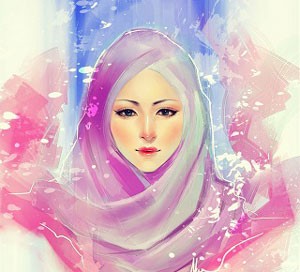Answer
Answer:
As-Salamu ‘Aleikom,
May Allah (swt) Most High bless you and strengthen you on this illuminated path to which He has guided you. As you sacrifice in His way, remember that to keep your intentions pure and you will be blessed both in this life and the next. At each step along your path, especially in the current climate in Europe, people may try to block you from strengthening and developing a beautiful relationship with your Lord. You might feel they discriminate you as a Muslim woman who wears the veil. Please remember to persevere with the aim of pleasing Him and trust that He sees all and knows all.
May Allah (swt) make you be like Summayah, the first to die in the path of Allah (swt). Her passion and love for Allah (swt) kept her patient until the end. And remember the du`aa’ (supplication) of the Prophet (peace and blessings be upon him) when he left Taif; he had spent some days there calling people to Islam, only to be stoned, hit, and jeered at by the children of the city. When the Prophet (peace and blessings be upon him) left, with blood running down his body, he raised his hands and prayed, caring only that Allah (swt) was pleased with him. The reward of those who sacrifice in the way of their Lord is “gardens beneath which rivers flow where all their needs and desires will be satisfied.”
The situation of sisters who convert to Islam is often filled with trials, especially when they decide to wear the veil. While many families may be able to eventually deal with the other aspects of her changing her way of life, hijab serves to be a powerful and very visual reminder of that shift. It may reinforce feelings of anger, frustration, despair, worry, anxiety, and even depression amongst non-Muslim relatives. Unfortunately, and wrongfully so, in some cases, people also view the Muslim veil as the loss of liberty and freedom and the beginning of servitude and oppression. In other cases, as it is with your mother, there are cultural or superstitious beliefs attached to it as well. She believes that wearing the veil will bring bad luck.
Simply, there is no need for you to feel hypocritical about your situation. It is one of the challenges that many others like you have had to deal with and will continue to deal with as more women come to Islam. Perhaps your mother may change with time, but only Allah (swt) knows this. Your duty now is primarily the pleasure of Allah (swt) Most High, doing what He commands and being kind and keeping your ties with your family members, especially your parents.
Since your mother has become so antagonistic towards hijab, and it has impacted not only her relationship with you but also her health, and now your brother’s support for you is affected, I would recommend that you wear your veil all the time except when you get to the door of your parent’s home. At that time, you can replace it with a hat or something else. Once you are inside their home there is no need for you to wear the veil anyway. Should a stranger be present, you can resume wearing the hat or simply remove yourself by making some excuse. 
In this way, you will maintain a relationship with your parents and perhaps be able to further influence them by being kind to them and through your behavior and manners. Additionally, you will be able to restore and re-develop the relationship with your brother. He has been sympathetic towards you and your right to do what is Islamically appropriate. Perhaps in this way, he too may come to the light and guidance of Islam. Once you leave their home, you can put back on your scarf. This is not being a hypocrite dear sister. Allah (swt) knows your situation. By doing this, you will fulfill your duty to Allah (swt), and you will maintain the ties of kinship with your family members.
In the meantime, continue to pray and make du`aa’ that Allah (swt) moves their hearts towards His light. We pray that Allah (swt) Most High blesses you, makes this situation resolve itself, and guides your family to Islam through the examples of you and your husband. Please keep us informed about your situation.
And Allah (swt) knows best.
***
Disclaimer: The conceptualization and recommendations stated in this response are very general and purely based on the limited information that was provided in the question. In no event shall AboutIslam, it’s volunteers, writers, scholars, counselors, or employees be held liable for any direct, indirect, exemplary, punitive, consequential or other damages whatsoever that may arise through your decision or action in the use of the services which our website provides.
